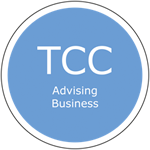WHAT IS BLOCKCHAIN?
Blockchain is a secure distributed electronic ledger (essentially a database), connecting multiple parties in a network of trust and integrity thereby facilitating the transfer of assets and essential information relating to those assets.
Blockchain does this by securely recording digital transactions in a sequential chain using cryptographic digital keys which are verified by the network as authentic. Duplication, editing or removal of transactions is prevented by the chain which is held on the computers of all those authorised to use the network which can be public or private i.e. only accessible by those participating in the chain.
A NEW TRADING PLATFORM
A trade transaction generally involves the exchange of assets between two or more parties and traditionally there has been at least one central third party that brokers the deal, provides trust and integrity in the deal being properly carried out and, in return, is compensated for that role. Blockchain alters this trading platform by bringing parties together in a trusted network without a third party and by recording each transaction sequentially and securely.
BUSINESS BENEFITS
Utilising this new trading platform can bring many business benefits but most are centred on delivering one or more of six aspects:
Benefit #1: Efficiency
Settling the transaction can be quick as they are completed directly between the relevant parties with no intermediary and with digitised information. Added to this is the ability to operate ‘smart contracts’ which automatically trigger actions based on satisfying the pre-agreed criteria laid out in the contract. This can dramatically streamline processes and consequently remove time and cost from transacting.
Benefit #2: Auditability
As each transaction is recorded sequentially and indefinitely it provides an indelible audit trail for the life of an asset even between parties. This is especially important if source data is essential in verifying an assets authenticity.
Benefit #3: Traceability
Tracking goods forwards in a supply chain can be advantageous when seeking to trace where components are currently residing. Information relating to the component can then relayed to or from the new owner for possible action.
Benefit #4: Transparency
Lack of commercial transparency can sometimes lead to delays in commerce and a breakdown in relations. By providing details of transactions against the commercial construct, further trust can be enlisted within the process and so provide a more stable relationship based on transparency rather than negotiation.
Benefit #5: Security
The authenticity of the information can be assured as each transaction is verified within the network using independently verified complex cryptography. Assured information is one of the fundamental keys to unlocking the benefits of the Internet of Things.
Benefit #6: Feedback
With full traceability throughout the lifecycle of an asset, the asset designers and manufacturers can accommodate through-life asset management into their products to make them more effective. This can allow for information returning from shipping, installation, maintenance and decommissioning.
This article is for general guidance only and specific advice should always be taken before acting on any of the matters discussed.
CONTACT US
For information on how we can assist with a blockchain or smart contract please contact us at:
t: +44 1491 411579
